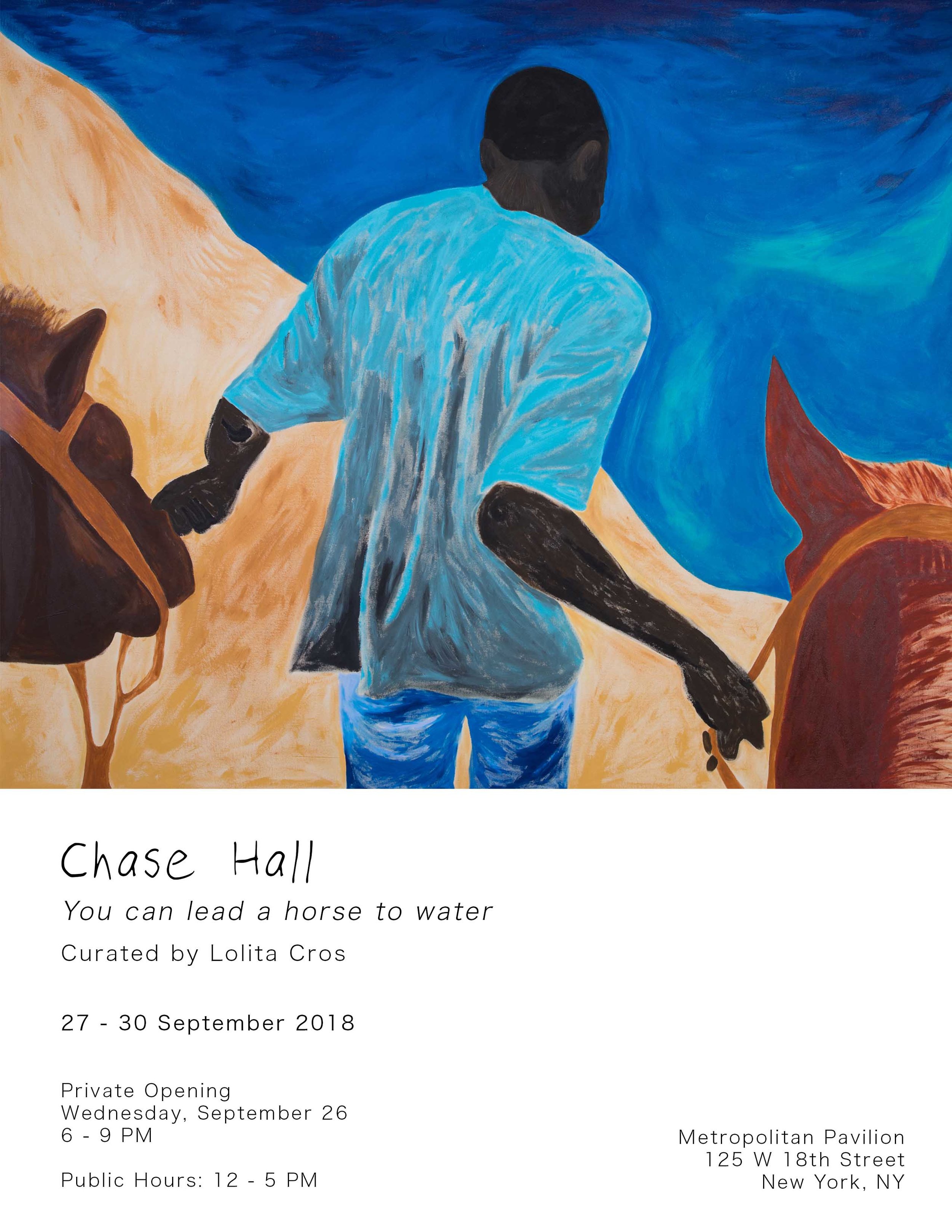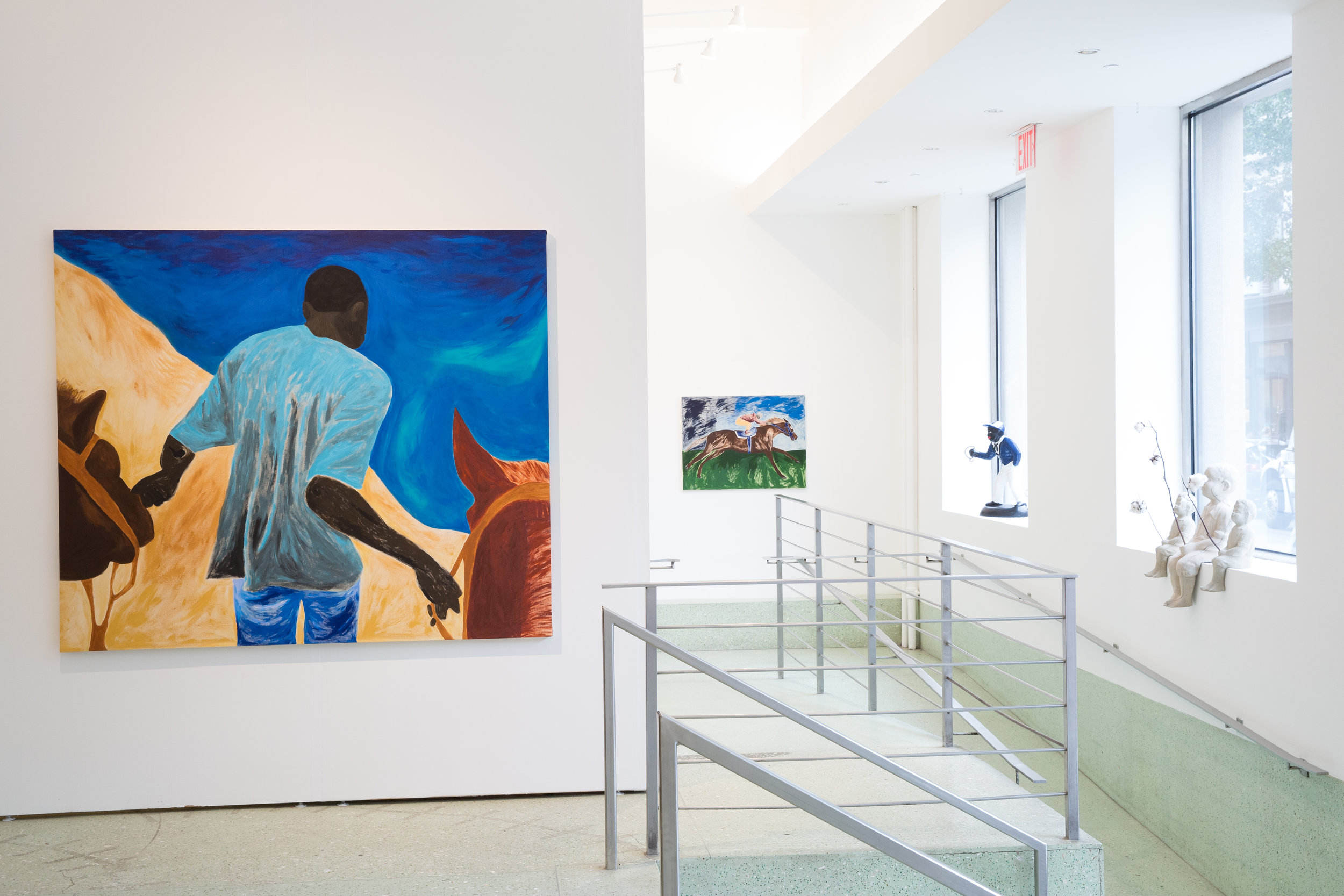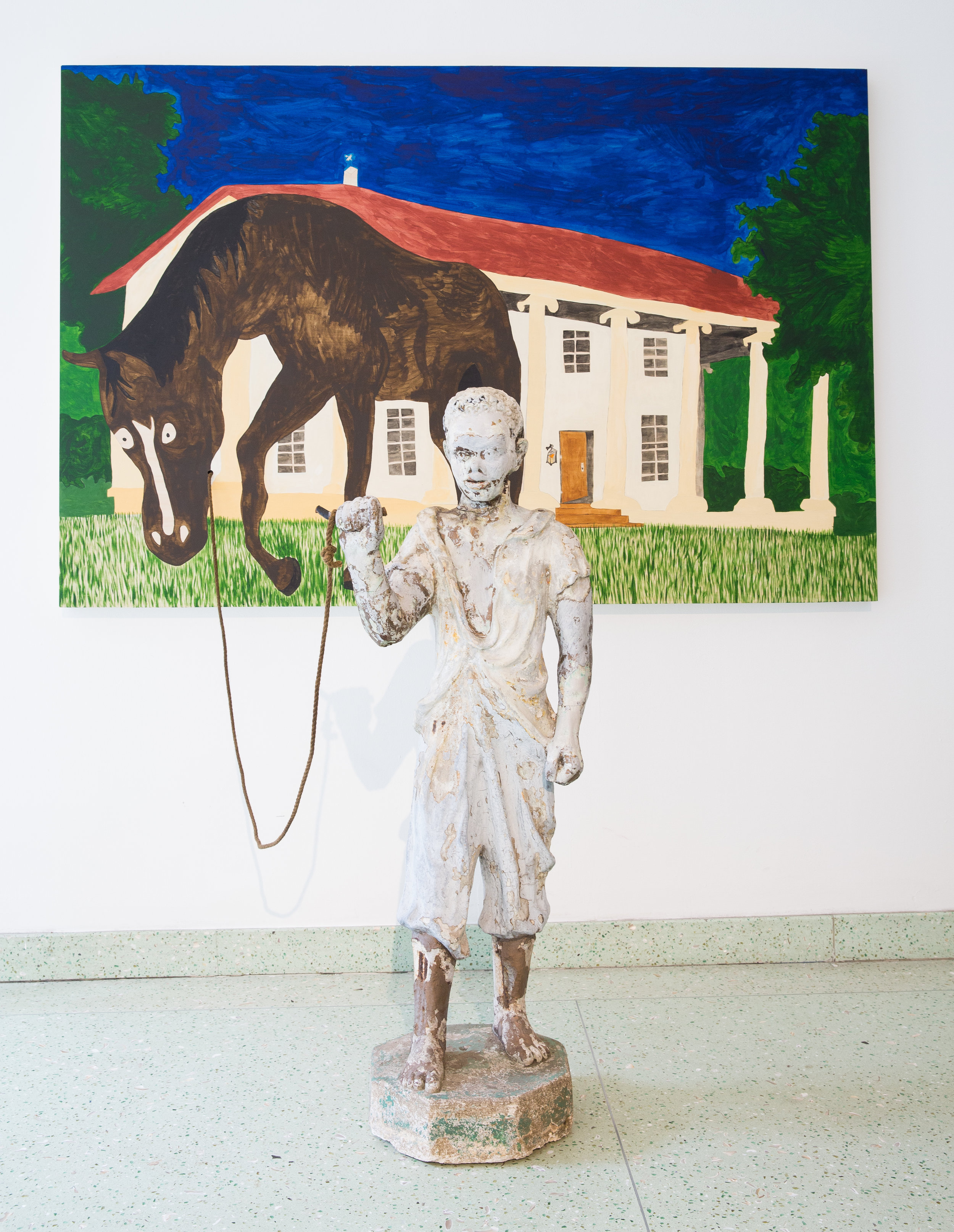YOU CAN LEAD A HORSE TO WATER
Affordable Art fair
september 26-30, 2018
Lolita Cros will present works by New York-based artist Chase Hall. A self-taught painter, sculptor, and photographer, Hall uses his artwork as a platform through which to critically engage the visual history of racial bigotry in the United States. By employing references of moments past, Hall aims to draw attention to inequity and prejudice that still exist today.
A horse is repeatedly portrayed in Hall’s show You can lead a horse to water, existing as multi-faceted trope to analyze African Americans’ relationship to the animal throughout history. A symbol of liberation, travel, and strength, the horse was crucial for early black America as the relationship they built with horses allowed them to escape the bindings of slavery as well as start developing an economic structure after the Emancipation Proclamation with the birth of legal horse racing.
Hall’s work also brings attention to the story of Jocko Graves, who’s historical misrepresentation and identity finds parallels to racial issues of today. As the story goes, Graves was a 12-year-old slave designated to watch after George Washington’s estate while he and his army went to fight in the Battle of Trenton. Instructed by Washington to tend to the horses and keep a lantern burning so the soldiers could find their way home, Graves was found frozen to death the day after the United States claimed victory. The young boy remained in the exact spot where he was ordered to stand watch with a lantern still burning in his clenched frozen hand. Graves’ tale was commemorated by a statue commissioned by George Washington, which is to this day a reminder of the insurmountable resilience of African Americans throughout history.
Over time, the original portrayal of Jocko Graves would change and its meaning lost, becoming popularized as a thankless lawn ornament displayed around the country like a demeaning relic of a racist past. By reclaiming these readymades in his work, Hall takes ownership of the meaning of the lawn jockey and gives him the proper context and memorialization as a beacon of heroism to African Americans.
Growing up with a horse trainer mother, Hall spent time moving across America. In his journeys, he was confronted by lawn jockeys time and time again. As a mixed-race child of African American and white parents, he felt like he had more in common with the lawn ornament than the fair skinned bourgeois who employed his mother. The stereotypical image of the jockey creates a massive amount of disinformation that widens the gap of equality as it continues to circulate from generation to generation. Existing between two cultures, Hall is constantly analyzing both sides of the spectrum, not finding true acceptance in either corner.
The show will feature a range of Hall’s paintings and sculptures. Using found metal casts from the early 1900’s, he allows us to reevaluate our interactions and relationships with these artifacts. By appropriating mundane elements, Hall’s work helps to unlearn the history that we’ve been taught and articulates the racial grounds of America. Like a Trojan horse, the lawn jockeys have appeared for centuries to be lighthearted and decorative when in reality they represent oppression and abuse. As a parallel, Hall’s works come off as playful but also act as a skeleton key to our deepest subliminal understandings, presenting a double conscience of the past yet working to promote a better future.
You can lead a horse to water will be on view at the Affordable Art Fair from September 26-30, 2018
For all sales inquiry please contact: info@lolitacros.com
SELECTED PHOTOS













